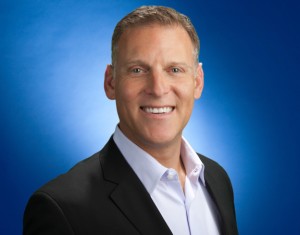What do you get when you cross the video-sharing giant YouTube with the creative genius and marketing savvy of the web video company Next New Networks? You get YouTube Next Lab, a Google subsidiary that is connecting YouTube audiences around the world with the brands they love.

Lance Podell ’86
At the center of this March 2011 alliance was Lance Podell ’86, now director and global head of YouTube Next Lab. Formerly chief executive officer and chairman of Next New Networks, he pioneered edgy television for the Internet.
News of the transaction was reported in major publications across the nation, including The New York Times , which noted that the acquisition represented YouTube’s biggest effort yet to move beyond short, quirky home videos to professionally produced content.
The role of an Internet marketing pioneer is a familiar one for Podell, an English and government & law graduate, who holds a master’s degree in business administration from Harvard. An early adopter of web-based technologies, he has been both advertiser and publisher in the online marketing of such brands as Quaker, Walt Disney, Reebok, Proctor and Gamble Co., and AT&T Inc.
Early in his career, Podell was involved in the Ogilvy & Mather team that created the first online credit card transaction site for American Express. Later, he collaborated on the first comparison shopping site, Shopping.com, and developed some of the first web display ads. And for Primedia, he built the Sprinks division, which created sponsored links on web content pages. Ultimately, his work resulted in the sale of Sprinks to Google.
Podell’s keen business instincts, which have positioned him in international leadership in his field, were first nurtured at Lafayette.
“Lafayette really encourages students to break out of the normal boundaries,” says Podell. “The environment helped me think differently and made me the kind of person I am in terms of the way I think about business challenges.”
Podell remembers an experience during his first year that set the tone. “On one of my papers, I got a note from my professor saying that he completely disagreed with my point of view. And he still gave me an A. That’s what it is all about—being allowed that kind of freedom was impressive.”
That Lafayette experience led to a career of challenging conventional wisdom and venturing into new frontiers. With each experience, Podell saw synergies. “The ecosystem between the publisher, the advertiser, and the viewer is really fertile,” says Podell. “And that three-legged stool is what drives media.”
Enter social media into the mix and a new dynamic is added to the equation. “When you think about media moving forward, we’ve really now added a fourth leg to that stool—consumer input,” explains Podell. “Consumers are helping to determine how brands move forward. Media is evolving and interactivity is a critical piece of that.”
YouTube is a ripe arena for brand marketing, with its corner on the market in user-generated video content and its active interface with viewers. But, in order to become the 800-pound gorilla of Internet marketing, the video-sharing giant needs to build stronger relationships with consumers worldwide so that its content becomes more than just lunch-break entertainment.
According to Podell, the keys to meeting that challenge are closer collaborations with video creators and a translation of the YouTube experience for audiences in Europe and Asia.
“YouTube has relied mostly on the community of YouTube to take care of itself,” says Podell. “In order to grow this ecosystem—just the way that cable did when it tried to take on television—we have to support the environment. In the future, we have to get out there and work with the creators to do everything we can to make them successful.”
Since taking a second bite of the Google apple, Podell and his team have collaborated on the YouTube Creator Playbook—a manual that Podell calls “YouTube for dummies.” In addition, they are developing YouTube studios that will offer creators a physical space to shoot, edit, collaborate, and share best practices. The Google subsidiary is eyeing Tokyo, London, Los Angeles, and New York City for the first of these facilities.
Additionally, Podell is working with other YouTube teams to boost the company brand even more. These efforts include his work to translate and globalize the YouTube experience.
“Different markets have different parts of the YouTube process that work for them,” he explains. “For example, the YouTube environment relies on lots of people commenting on videos. In Asia, the people are more self-conscious about commenting on another’s work. So, we need to translate what works here to something that will work for that market.”
As he launches these new initiatives, Podell is grateful for his Lafayette experience. “The value of a small-school environment really prepares you to be able to run,” he says. And in the frontier of Internet marketing, those who run the fastest claim the greatest market share.

1 Comment
Comments are closed.